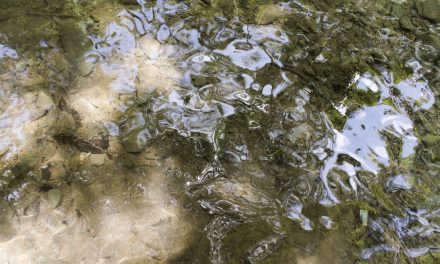Stormwater management is important in many U.S. cities, but in New Orleans it is of unique significance. Those who visit the city for WEFTEC® 2024, which takes place October 5–9, can benefit from a full slate of stormwater-focused educational opportunities driven by the expertise of the world’s brightest water professionals. Offerings featured in the WEFTEC 2024 program will provide game-changing insights into such hot topics as climate change planning, green infrastructure design and maintenance, flood management, stormwater reuse, and many others.
In addition to two facility tours that will bring attendees face to face with New Orleans’ oldest and most innovative stormwater facilities — the National Historic Civil Engineering Landmark Drainage Pumping Station 6 and the city’s stormwater fixtures along the Lake Pontchartrain Basin — WEFTEC 2024 features more than a dozen stormwater-focused technical sessions. These educational seminars cover such concerns as financing, permitting, smart sensors, disinfection, and results from the latest U.S. Environmental Protection Agency (EPA) Clean Watershed Needs Survey.
“We want today’s stormwater professionals and managers to have cutting-edge, usable information to address the challenges facing them today,” said Caroline Burger, Chief Stormwater Technologist for Carollo Engineers (Walnut Creek, California) and WEFTEC 2024 Stormwater Program Symposia Chair. “WEFTEC attendees and participants will be able to immerse themselves in stormwater content and make connections that will both help the communities they serve and their unique careers.”
Squeezing Every Drop From Green Infrastructure
Attendees interested in nature-based solutions to manage both stormwater quantity and quality will find numerous case studies applicable to a range of sites and contexts.

The 90-minute session “Case Studies Implementing Stormwater Parks and Green Infrastructure Across North America,” taking place Monday, October 7, at 1:30 p.m., offers a deep dive into urban parks and other public-targeted green infrastructure from their earliest planning stages through ongoing operations and maintenance procedures. Participants will work among themselves to follow the stories of various green infrastructure projects designed according to different goals, including areas where subsurface excavation is costly or impossible as well as arid climates where vegetation cannot flourish. Session facilitators include representatives of Hazen and Sawyer (New York), MS Consultants Inc. (Columbus, Ohio), and the City of Richmond, Virginia, with additional presentations from staff of HDR Engineering (Omaha, Nebraska) and CDM Smith (Boston).
On Wednesday, October 9, at 1:30 p.m., attend “Green Infrastructure Implementation at Home and Abroad” for perspectives on differing ways the cities of Boston, New York, and Melbourne, Australia, used green infrastructure to accomplish various goals. In Boston, stormwater professionals are replacing catch basins with biofiltration cells to improve the quality of roadway runoff. In New York, green infrastructure is helping urban planners avoid challenges with subsurface construction in high-density residential neighborhoods. In Melbourne, a master-planned community based on environmental sustainability champions distributed green infrastructure to maximize storage and minimize runoff generation. Speakers representing Tetra Tech (Pasadena, California), WSP USA (New York), Atkins North America (Tampa, Florida), and GHD (Sydney, Australia) will discuss applicable lessons to other cities affected by climate change and chronic flooding.
Answering the Money Question
When theory becomes practice, the most pressing questions facing infrastructure-minded stormwater professionals often relate to funding and long-term maintenance. WEFTEC 2024 features several technical sessions focusing narrowly on project logistics.
During “Stormwater Infrastructure Operation and Maintenance: Management and Funding” on Monday, October 7, at 3:30 p.m., hear from green infrastructure program leaders in major cities as they discuss their varying approaches to funding ongoing maintenance, as well as how those strategies differ based on a range of green infrastructure designs and settings. Participants will hear from speakers representing New Orleans, Los Angeles, and Philadelphia, as well as Arcadis US Inc. (Highlands Ranch, Colorado) and the New York Power Authority (White Plains), as they identify green infrastructure resilience design measures that can make projects more cost-effective over their lifespans.
Some cities have found long-term success in financing stormwater infrastructure by embracing innovative funding mechanisms. Learn from representatives of San Diego, Los Angeles, and other cities during “Financing Stormwater Infrastructure in Communities” on Tuesday, October 8, beginning at 8:30 a.m. This session will spotlight such programs as EPA’s Water Infrastructure Finance and Innovation Act, Los Angeles’ Safe, Clean Water Program, and other large-scale financial instruments supporting stormwater infrastructure. Among invited speakers are representatives from Carollo Engineers, HDR, EPA, the City and County of Honolulu, and the University of California San Diego.
Mapping Roads to Resilience
With high-profile extreme weather events and natural disasters on the rise around the world, stormwater professionals increasingly are seeking new ways to improve community resilience. Attending WEFTEC 2024 sessions centered on climate adaptation and emergency response can help protect people and property in the event of the next storm, wildfire, or drought.
With the memory of the 2023 Hawaii wildfires still fresh in mind for many, a session titled “Resilient Solutions in Response to Nature’s Forces” on Tuesday, October 8, at 3:30 p.m. spotlights the actions of Lahaina Wastewater Reclamation Facility staff as they responded to blazes in Maui and associated flooding issues. Speakers include representatives Lahaina and the County of Maui, assisted by moderators from Hazen and Sawyer and Brown and Caldwell (Walnut Creek, California). Additionally, speakers from Beca Ltd. (Auckland, New Zealand), and Te Amokura Ltd. (Wellington, New Zealand) will describe recovery and response efforts in the face of extreme weather in Oceania, emphasizing the importance of integrated stormwater management and land use policies before an event as well as strong community engagement during rebuilding efforts.
“Climate-Proofing Our Cities: Transformative Solutions,” kicking off Tuesday, October 8, at 1:30 p.m., will follow case studies from San Diego, Philadelphia, Clayton County (Georgia), and Boston as they work to improve resilience against climate change-related flooding. Tactics to be discussed include proactively rehabilitating and replacing aged stormwater infrastructure, applying adaptive management to reduce flood risk for critical facilities, developing thorough flood warning and response plans, and designing reliable infrastructure targeting coastal flooding and storm surge. A variety of speakers from consulting engineering firms will join city representatives to discuss their success stories, covering such topics as incorporating climate change projections into stormwater design guidelines and leveraging historical data to optimize and increase confidence in long-term infrastructure campaigns.
Explore the full WEFTEC 2024 technical program and register today to attend the largest annual water quality event in North America.

ABOUT THE AUTHOR
Justin Jacques is editor of Stormwater Report and a staff member of the Water Environment Federation (WEF). In addition to writing for WEF’s online publications, he also contributes to Water Environment & Technology magazine. Contact him at jjacques@wef.org.







